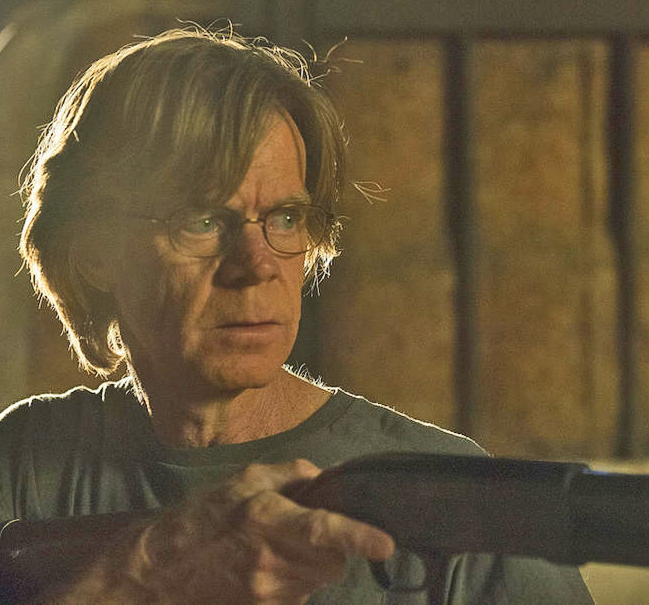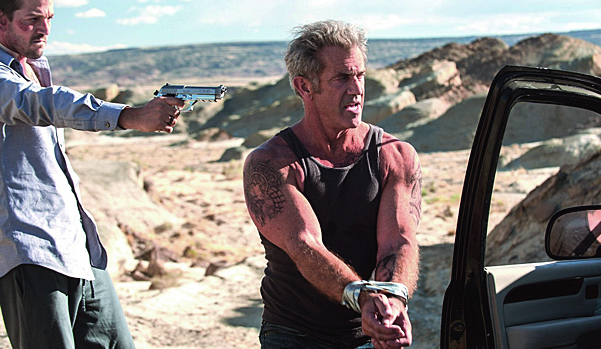“It’s a business opportunity,” explains Jake (Shia LaBoeuf) to dreadlocked, wild-child Star (Sasha Lane). She’s eyeing him up in the aisles of a Midwestern Walmart while he dances around with a rag-tag, stoned young crew to Rihanna’s “We Found Love”. “We go door to door. We sell magazines. Come with us.” Sounds an unlikely proposition.

As an old Sixties lefty brought up on thrillers like The Parallax View, Oliver Stone loves ripping open great American political conspiracies, and inevitably he portrays CIA whistleblower Edward Snowden as a noble crusader for free speech and democratic accountability against the might of America's intelligence agencies. If you work for the CIA you'll hate Snowden (★★★★), but Stone has fashioned the story into a tense, fast-moving drama which will leave you pondering over what's really justifiable for the greater good.

Dont Look Back is the Ur-rockumentary, the template for hundreds of hand-held rock tour films, a source of inspiration as well as a model to aspire to.

Paul Verhoeven directing Isabelle Huppert as a woman seemingly unfazed by a violent rape sounds a recipe for outrage. Elle (★★★★) , though, provokes in subtle, lingering, sometimes comic ways. The rape of Michele (Huppert) mostly happens off-screen during the opening credits, though the ski-masked intruder’s violence in her plush, gated Paris house will be replayed as memory and fantasy. It’s what happens next that lurches right off the rails from the leering salaciousness, traumatised horror or rape revenge cinema usually gives us.

The cinema trailer for A Monster Calls ★★★★ looks faintly ludicrous, with its scenes of a giant tree stomping around the landscape, but don't be deceived. In conjunction with screenwriter Patrick Ness, who also wrote the original novel, director J A Bayona has conjured a bittersweet and often painfully moving account of bereavement and growing up, in which the grim burden of terminal illness is alleviated by the healing power of art and fantasy.

Having been to Hollywood hell and back, Mel Gibson is perfectly placed to play the battered big daddy par excellence. Here he is, in the person of John Link, ex-jailbird on parole, recovering alcoholic and former outlaw biker, now eking out a living as a tattooist on a trailer park in the California desert. Weatherbeaten and bearded like an escapee from a jungle PoW camp, Link looks like a man a coin-toss away from extinction.
In his downbeat isolation, Link enjoys a little light relief by bantering bad-temperedly with his trailer-neighbour and AA sponsor Kirby (William H Macy, pictured below, right on the money) in between etching designs of surprising elegance on the limbs of his unwashed and unshaven clientele. His copy of Picasso's Don Quixote sketch might even fetch a few bucks. But Link's new, sober life will never bring him the contraband thrills of his old one.
 Thus it's a kind of relief when he's suddenly contacted by his estranged 16-year-old daughter Lydia (Erin Moriarty). He hasn't seen her for years, but nothing good has happened in between, and now she's on the run from the ferocious enforcers from a Mexican drug cartel. Lydia, it seems, killed her boyfriend Jonah (Diego Luna) when he and his gang dragged her along to a brutal home invasion. Jonah (pictured below with Gibson) was the upstart son of the cartel boss known as El Padrino, and now Lydia must die.
Thus it's a kind of relief when he's suddenly contacted by his estranged 16-year-old daughter Lydia (Erin Moriarty). He hasn't seen her for years, but nothing good has happened in between, and now she's on the run from the ferocious enforcers from a Mexican drug cartel. Lydia, it seems, killed her boyfriend Jonah (Diego Luna) when he and his gang dragged her along to a brutal home invasion. Jonah (pictured below with Gibson) was the upstart son of the cartel boss known as El Padrino, and now Lydia must die.
Link is delighted to see Lydia again, though he manages to hide his rekindled paternal feelings behind a facade of macho self-sufficiency, but he's a little taken aback to find her loaded up with supplies – bottles of bourbon and gin, an assortment of drugs and a gun. The apple didn't fall far from the tree, but Link is determined to use all his hard-earned smarts to save Lydia from following his own road to perdition – if there's still time.
His race to beat the bad guys is part road movie, part outlaw caper and a little bit Mad Max (a scene where Mel swings his motorbike into the centre of the highway to wield a righteous shotgun at his pursuers peels away the years with panache), and the narrative is handled with sinewy directness by director Jean-François Richet. The sequence where a squad of Mexicano killers besieges Mel's trailer with torrents of gunfire may well be a knowing flashback to the director's Assault on Precinct 13. Richet is perfectly in tune with screenwriter Peter Craig (adapting his own novel), who has a knack for speedy boiled-down dialogue, like Mel's capsule description of his daughter: "This kid's a carnival, man. She's every loser's lucky day."
 En route, there's space for some zesty character-sketches. Miguel Sandoval is sly and knowing as Link's jailbird-insider confidante Arturo, while Michael Parks (a Tarantino regular) plays Preacher, one of Link's old running mates and a Vietnam veteran who trades in military memorabilia (his sign says "In uncertain times, Nazi collectibles are a foolproof investment"). Sadly, uncertain times also prove to have soured their former bonds of friendship, though Link and Preacher are able to lament together the way that all the rebels have been corporatised, sanitised, compromised and lobotomised by the system.
En route, there's space for some zesty character-sketches. Miguel Sandoval is sly and knowing as Link's jailbird-insider confidante Arturo, while Michael Parks (a Tarantino regular) plays Preacher, one of Link's old running mates and a Vietnam veteran who trades in military memorabilia (his sign says "In uncertain times, Nazi collectibles are a foolproof investment"). Sadly, uncertain times also prove to have soured their former bonds of friendship, though Link and Preacher are able to lament together the way that all the rebels have been corporatised, sanitised, compromised and lobotomised by the system.
The fiery denouement takes place amid soaring desert landscapes under a blazing sun. Refreshingly, Link is not a man in search of redemption, more like an inveterate renegade who never got the point of going straight in the first place. This punchy, pacy slice of desert-noir is a real treat.

Can Louis Theroux bring anything new to the Scientology party? If you’ve seen Going Clear, Alex Gibney’s detailed documentary based on Lawrence Wright’s book, or watched Tom Cruise acting weird on YouTube, you already know that the Church’s great secrets are not so secret any more. We’ve heard about the aliens and the galaxies, the E-meters and the Operating Thetans, the elite Sea Org and the hellish conditions in the Hole.
Australian Ballet's cinema broadcast on Tuesday night appears to have been a little under-publicised

Much was anticipated from Tate Taylor's film version of Paula Hawkins's bestselling novel, but there really are times when the best plan is to stay home with a good book. Despite a high-octane girl-power cast and the lustrous screenwriting reputation of Erin Cressida Wilson, this thing clanks along like the 3am milk train to Exeter sidings.

The Emigrants and The New Land have to be seen. In each, the story is gripping, the acting marvellous and the depiction of the period setting evocative and flawless. Any of these aspects would be reason enough to see a film, but the clincher is director Jan Troell’s adeptness at showing how the smallest details impact on destiny. Taking a moment’s rest from a menial task on a farm can lead to consequences which colour a whole life. But this is not where it stops. Troell weaves such moments seamlessly into a grand, sweeping arc for which the only word is epic.

